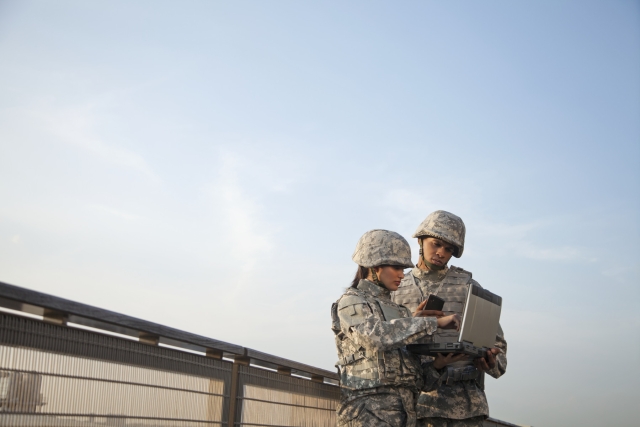Al-Qaeda Launches Improved Encryption Platforms, Crytography Programs

In response to Edward Snowden's revelations, terrorist organization Al-Qaeda has adopted “stronger encryption techniques to bypass the standard cryptographic protections in its various communications”.
The U.S. and it's allies have noted that Al-Qaeda has changed its communications methods following his disclosures. Among Al-Qaeda's most common and well-known encryption technologies is the Mujahideen Secrets but the group has upgraded to new platforms like mobile, instant messaging, and Mac.
The upgrade to their encryption technology comes for the first time in seven years following Snowden's massive NSA revelations last year.
Since then AQ has increased it's “pace of innovation, specifically new competing jihadist platforms and three (3) major new encryption tools from three (3) different organizations – GIMF, Al-Fajr Technical Committee, and ISIS – within a three to five-month time frame of the leaks,” according to a study published by the the Middle East Media Research Institute (MEMRI).
These three tools bolster the original 'Mujahideen Secrets' tool that have primarily been used for email by Al-Qaeda since 2007.
“The nature of these new crypto products indicates strategy to overlay stronger and broader encryption on Western (mainly US) consumer communication services,” states the report. “We do not find evidence of abandonment of US-based consumer communication services. Likely risks are still greater to hide outside the consumer crowd, and non-US-based services may be exposed to even stronger lawful intercept.
Among AQ's latest tools are the Tashfeer al-Jawwal, a mobile encryption platform developed by the Global Islamic Media Front (GIMF) and released in September 2013.
The Asrar al-Ghurabaa, another alternative encryption program developed by the Islamic State of Iraq and Al-Sham (ISIS) and released in November 2013, around the same time the group broke away from the main Al-Qaeda following a power struggle.
And Amn al-Mujahid, an encryption software program developed by Al-Fajr Technical Committee which is a mainstream al Qaeda organization and released in December 2013.
Asrar Al-Ghurabaa', which is a play on the name of Asrar Al-Mujahideen – the GIMF's flagship encryption program used by Al-Qaeda affiliates and their supporters – is based on a webpage (asrar006.com) that allows jihadis to encrypt and decrypt messages. The webpage, however, does not provide a means of transmitting those messages, but only of encryption and decryption. Messages must be sent by other means, such as email, instant messaging, and the like.
According to its developers, Asrar Al-Ghurabaa' is more accurate, secure, and user friendly than Asrar Al-Mujahideen, and was conceived with the help of "specialist brothers" who contributed their ideas. It requires no software download or installation, which eliminates one of the major drawbacks of Asrar Al-Mujahideen – that is, the risk of downloading infected or missing files.
In January 2014, U.S. Rep. Mike Rogers, who chairs the House Permanent Select Committee on Intelligence, discussed how the Snowden episode has led Al-Qaeda to change its tactics.
He stated, "[Y]ou have to remember, Al-Qaeda has changed the way they communicate based on this. That puts our soldiers at risk in the field. That's a real dangerous consequence. Nation states have started to make changes that concern us greatly. We're going to have to rebuild whole aspects of operations from our Army, Navy, Air Force, and Marines that will cost billions and billions of dollars because the information he stole and gave, which we believe is now in the hands of nation states who are doing something with it. There's no honor in that.”










